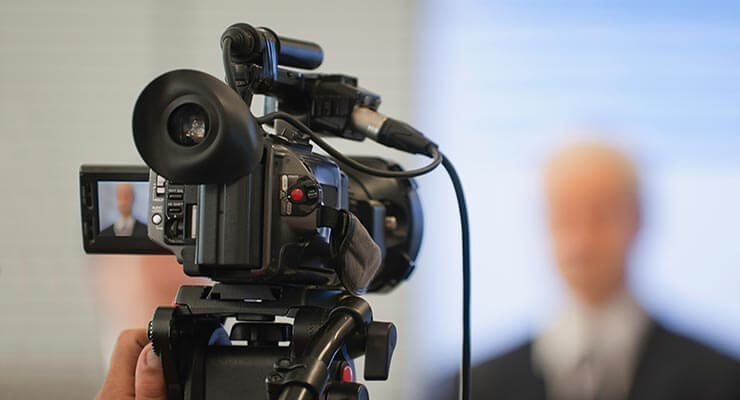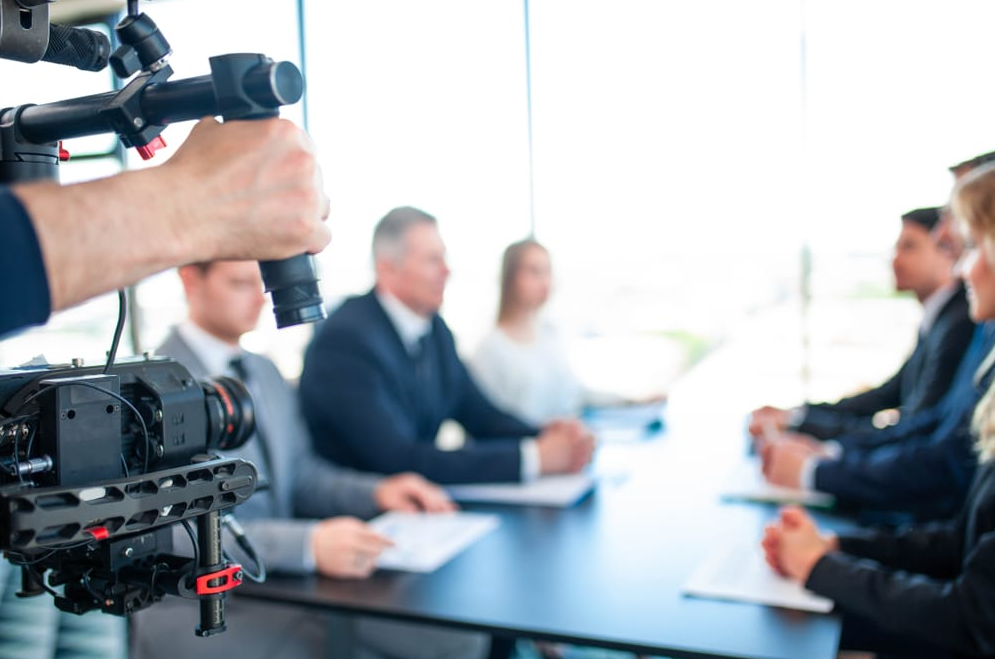The Duty of Legal Videography in Depositions and Tests
Lawful videography has arised as an important tool in both depositions and tests, giving a complex strategy to documenting witness testimonies. As legal experts increasingly identify its worth, it motivates a deeper assessment of just how these aesthetic documents can affect juror assumptions and trial results.

Value of Lawful Videography
Lawful videography plays a crucial function in the documents and presentation of depositions and trials. This specialized area incorporates technological abilities with lawful understanding to develop a reliable record of procedures that can significantly affect instance results. The aesthetic element of legal videography enhances the understanding of witness testimony, allowing jurors and judges to observe not just the talked words however likewise the temperament, emotions, and body language of the witnesses.
In addition, legal videography offers an objective account of events, decreasing the capacity for misconception that can accompany created transcripts alone. This visual documents functions as an important device during trial presentations, facilitating a clearer and even more influential narrative for both plaintiffs and offenders. The capability to replay video clip segments during court proceedings enables lawful groups to highlight crucial factors, reinforcing their arguments efficiently.
The relevance of lawful videography extends past the court room; it likewise plays an important duty in preserving evidence for future referral, whether for charms or additional lawsuit. Because of this, its assimilation into the lawful process is essential for making certain a fair and precise depiction of the truths, eventually adding to the quest of justice.

Process of Legal Videography
While catching the nuances of depositions and tests, the procedure of lawful videography involves several crucial actions that guarantee high-grade, exact recordings. Initially, a specialist lawful videographer prepares by evaluating the situation materials and recognizing the details demands of the deposition or trial. This prep work includes familiarizing themselves with the participants and the context, which aids in recording important information.
On the day of the recording, the videographer establishes up the necessary devices, which normally consists of high-def cameras, microphones, and correct illumination. Ensuring optimal angles and audio top quality is essential, as it directly impacts the efficiency of the recording. The videographer communicates with lawyers and participants to develop methods, making sure that everybody comprehends the recording procedure.
During the deposition or trial, the videographer carefully tapes the process, paying very close attention to both spoken and non-verbal hints. This includes capturing the attitude and reactions of witnesses and lawyers. After the session concludes, the videographer might modify the footage for clearness and compliance with legal requirements, creating a final item that properly reflects the procedures for future recommendation and use in legal contexts.
Benefits in Depositions
The consolidation of videography in depositions provides various advantages that enhance the general process of gathering proof. One key benefit is the capacity to capture witness testimonies with visual and auditory fidelity, supplying an extra accurate representation of the witness's temperament, tone, and body language. This multidimensional technique permits lawyers and courts to examine integrity extra efficiently than traditional written records alone.
Furthermore, videographed depositions act as an effective device for maintaining statement. Must a witness come to be unavailable for trial, their tape-recorded deposition can be played in court, guaranteeing that their evidence continues to be accessible and pertinent. This element considerably reduces the danger of losing important details visit this website that can impact instance results.

Last but not least, videography enhances the overall professionalism of the deposition procedure, instilling self-confidence in customers relating to the thoroughness of their lawful representation (legal videography). By leveraging technology, lawful professionals can significantly boost the performance of depositions
Influence On Tests
In several tests, the combination of videography can dramatically influence the discussion of proof and the jury's understanding. Lawful videography records witness statements and important proof in a vibrant format, allowing jurors to engage with the material on numerous degrees. This aesthetic element improves the storytelling element of a trial, offering context and psychological resonance that traditional text-based evidence might do not have.
In addition, video recordings can function as powerful tools for impeachment during cross-examination. When discrepancies arise in between a witness's prior declarations and their court room testament, video proof provides an objective referral that can sway jurors' opinions. This immediacy and clearness can boost the integrity of a party's narrative while all at once threatening opposing disagreements.

Future Trends in Legal Videography
As we look towards the future of legal videography, numerous arising patterns guarantee to improve its duty within the court room. One significant fad is the assimilation of man-made intelligence (AI) in video clip analysis and Look At This editing and enhancing. AI can enhance the process of determining crucial moments in videotaped depositions, permitting attorneys to promptly access pertinent web content, thus boosting effectiveness in situation preparation.
In addition, the increase of online reality (VR) and boosted reality (AR) technologies is expected to change just how jurors experience evidence. legal videography. By submersing jurors in a simulated environment, these technologies can give a more profound understanding of complicated scenarios, resulting in more educated considerations
Additionally, the enhancing demand for remote depositions, accelerated by the COVID-19 pandemic, will likely continue. Legal videographers will need to adjust to new software program and systems to make sure premium recordings in digital settings.
Last but not least, the expanding focus on information protection will certainly necessitate stricter procedures for storing and sharing video proof. As the legal landscape advances, lawful videographers must stay abreast of these trends to maintain their importance and performance in the judicial process.
Verdict
In summary, lawful videography serves a crucial function in the judicial process, enhancing the integrity of depositions and trials. As innovation proceeds to evolve, lawful videography is poised to more change its role within the legal landscape.